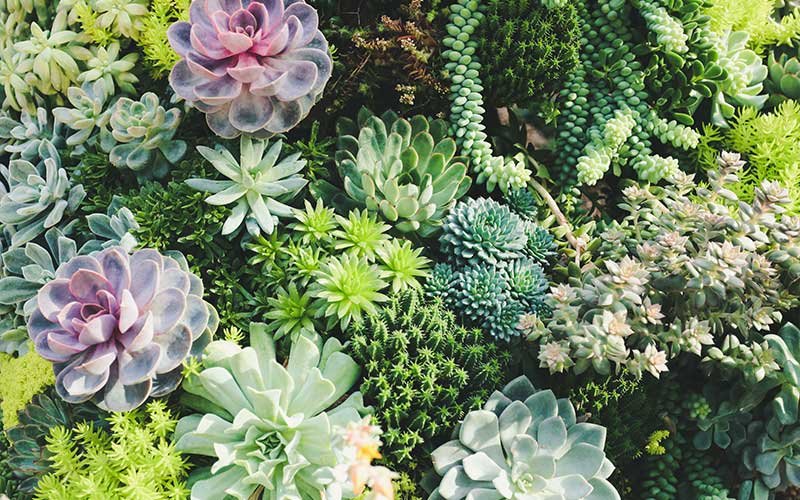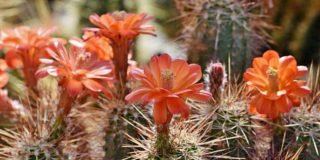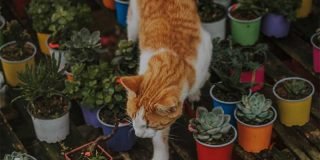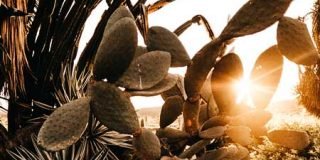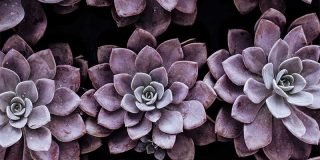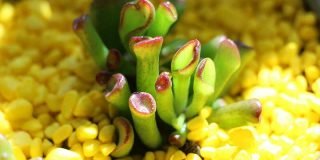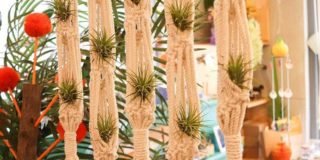Contents
Eco-friendly products are the trend nowadays. You can see labels such as “green”, “organic”, and “environmental-friendly” on almost every item, including gardening products. While some companies are not genuinely eco-friendly and are merely doing it for sales, some are going the extra mile to be genuinely ethical in their products and services. There is a high demand for sustainable products nowadays, so we will continue to see them in the market as companies supply this high demand.
Sustainable and eco-friendly are often used interchangeably, and they can be loosely defined as anything that is not harmful to the environment. These products or services contribute to the conservation of resources like water and energy and reduces ecological/environmental footprint, which refers to the effect that an entity has on the environment. Eco-friendly gardening is one of the ways to reduce our environmental footprint.
Sustainable Succulents
To many people, succulents may be a “millennial thing” because of their aesthetic value, but they provide an essential component to the environment. The ability of succulents to store water in their leaves makes them not only manageable plants but also sustainable ones. Succulents are drought-tolerant and only need to be watered every ten days or so. Propagating them is also effortless. Pluck out a leaf from your plant, let it dry, place it in soil and wait for it to grow roots.
Succulents are also one of the few types of plants that give off oxygen even in the absence of light, so they work great as a bedside fixture. These plants will keep your oxygen cycling inside your living space even during the night.
Whether you are a seasoned succulent grower or planning to own your first plant, you can reduce the impact you have on our environment by choosing eco-friendly gardening products.
Organic or Natural Fertilizers
Organic and organic fertilizers both provide plants with nutrients such as nitrogen, phosphorus, and potassium, which are essential for their growth. Their difference lies in the ingredients they have and the way they feed the nutrients to the plants. Organic fertilizers create a healthy growing environment for plants over time, while inorganic fertilizers provide faster results.
Organic fertilizers contain organic materials such as animal matter, animal manure, and vegetable matter. These organic matters supply the plant with nitrogen, phosphorus, and potassium through a natural process. They enrich the soil and improve the soil’s quality over time, so they take effect more gradually than inorganic fertilizers.

Choosing which type of fertilizer to use depends on your budget and the nutritional needs of your succulent, but also consider the environmental impact of your preferences and the long-term effect it can have on the ecosystem.
Manure Tea
Manure tea bags are a popular natural alternative to inorganic fertilizers. The tea bags contain manure of livestock that were collected, fermented, and cured. The manure is cured to rid it of any harmful pathogens. Once cured, the manure is placed in a steeping material like a burlap sack or gunny sack, and they’re ready for use.
To use the manure tea, steep the tea bags in water for two to three days in a covered container. Water your plants with the steeped water, and spread the leftover manure on the soil of your plants. The tea is mild and will not burn your succulents.
Using manure tea is a sustainable way of fertilizing because waste products are reused beneficially. They are great alternatives to the inorganic and chemical fertilizers. You can easily make your manure tea fertilizers, or you can also purchase them from garden stores.
Composting

Another way of providing nutrients to your plants in a natural way is by using composted materials. The process involves running your kitchen scraps and other garden materials into decomposed materials that aid in the growth of beneficial microbes in your plant soil. These decomposed materials turn into soul supplements that are filled with nutrients and are regarded by gardeners as “black gold”.
The process of composting may seem like a daunting task, but it has many benefits to your plant and our environment. Compost materials enhance the quality of the soil and improve the appearance and growth of your succulents. Not only does it make for a good and cheap alternative to chemical fertilizers and supplements other organic fertilizers, but it also reduces the wastes that come from our homes.
Most garden stores sell organic compost, but you can also make your own. Organic compost contains three main ingredients. The first is the browns, and they include dry leaves, branches and twigs, and even shredded newspapers. Next is the greens, or materials like vegetable and fruit scraps, grass clippings, coffee grounds, tea bags, and eggshells. Lastly, make sure to add the right amount of water to your compost pile.
Start by putting your browns at the bottom of your compost bin. Add a layer of greens on top of your browns. Alternate the layers and water the compost regularly to keep it moist. The water also helps in breaking down the organic matter of your compost pile. Cover the compost bin with a material that will help maintain the moisture and heat of your compost pile. Every two to three weeks, mix the compost using a garden fork. The composting process can take up to two months the least, depending on how much compost you want to produce.
We recommend using compost bins for your composting to make sure that the process is sanitary and that your compost pile is secure. Compost bins are readily available in most hardware stores.
Natural Rooting Hormones

Cinnamon powder
Cinnamon powder is a rooting hormone commonly used by succulent growers. Dip the cuttings in cinnamon powder or sprinkle the powder in the soil. Cinnamon powder also repairs any wound in the cuttings and prevents the growth of fungus in the soil.
Honey
Honey is a popular rooting ingredient for succulents because of its antifungal and antibacterial properties. Mix a tablespoon of raw honey to two cups of boiled water. Let the mixture cool, then store it in an airtight container. Keep it away from light. The mixture will last for about two weeks. To use it as a rooting hormone, dip the cuttings in the solution.
Apple Cider Vinegar
Gardeners commonly use apple cider vinegar as an organic weed killer because of its pesticidal properties. Beware of using too much apple cider on your plants because they may kill your plants. To use apple cider as a rooting hormone, mix ½ teaspoon of apple cider vinegar to 8 cups of water. Dip the ends of the cuttings on the mixture then stick the cuttings directly in the soil.
Pesticides and Insecticides
Using pesticides and insecticides helps get rid of pests in your plants, but they can also kill predators that your plants need. Pesticides can destroy your plant’s health and reproduction and can also cause an imbalance in its ecosystem. Instead of pesticides, there are natural alternatives you can use that are safe for your plants and are less harmful to our environment.
Neem oil
Dilute one teaspoon of neem oil in 8 cups of water and mix it well. Spray the mixture to in the infested parts of the plant. We recommend spraying neem oil on your plants at night to prevent your plant from being sunburned.
Rubbing alcohol
Create a solution of ½ water and ½ rubbing alcohol. Dab or spray the solution directly on the pests.
Essential oils
Spraying diluted citrus oil can help you get rid of pests and harmful insects in your plants. Similarly, sprinkling eucalyptus oil directly on the pests can deter them.
Soapy Water
Mix a few drops of soap to 2 cups of water. Spray the solution directly on the infested areas.
Ladybugs
Ladybugs are beneficial insects that feed on the harmful insects on your succulents. You can get these beneficial insects from your local nursery, gardening stores, or shops that sell farming equipment.
Eco-friendly plant containers

Sustainable gardening doesn’t need to be costly and tedious. A little creativity and research can help you find eco-friendly ways of growing your succulents that you will also enjoy. If you have other ideas on how to practice sustainability in growing succulents, please do share it with us in the comment box below. We’d love to hear from you!

